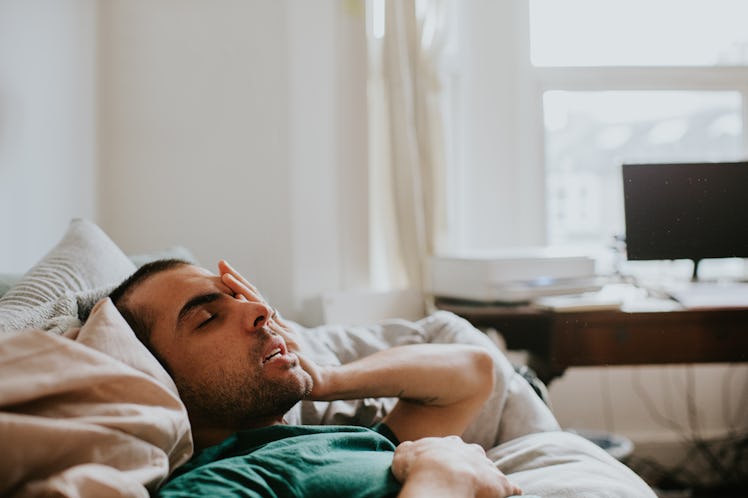7 Hours Of Sleep Can Protect Against Anxiety And Depression
A study adds to a growing body of research that finds that quality sleep protects you from just about everything — from Alzheimer's to heart disease.

Everyone wants a good night’s sleep, but according to new research, there may be more at stake when it comes to sleep than we realize. A new study published in the journal Cortex discovered that high-quality sleep is protective against a number of mental illnesses, including depression and anxiety, which affect almost 40% of American adults.
The research team, led by Dr. Scott Cairney from the University of York in the UK, examined data collected from over 600 participants in 2020 to test how quality sleep coupled with positive coping mechanisms affected mental health. From this data, the team determined that quality sleep and positive coping mechanisms were protective against depression and anxiety — and this in 2020, a time of unparalleled global stress.
“This is the first study to investigate the ways in which positive coping strategies and sleep quality influence depression and anxiety when experiencing a real-world chronic stressor,” explained Ph.D. student Emma Sullivan. “We found that better sleep quality was associated with fewer symptoms of both depression and anxiety during the initial months of the COVID-19 pandemic.”
The study adds to an existing body of research highlighting sleep as a protective mechanism against chronic physical and mental conditions. Studies have shown that adequate sleep helps prevent Alzheimer’s and has been linked to a decreased risk of heart disease. Additional research has pinpointed the “sweet spot” for time spent sleeping — seven to eight hours per night — to help improve memory, reflexes, communication, and other cognitive abilities. Anything less than seven to eight hours contributes to a sleep deficit that is difficult to make up and can have cumulative effects on cognitive ability.
That type of deep, quality sleep can be hard to come by, especially for parents. Researchers have recently pinpointed the age at which adults get the least sleep which, no surprise coincides with the most kid-heavy years. Changing sleep patterns — later bedtimes, earlier wake-up times, and more fitful nighttime sleep — combine to make your 40s the most sleep-deprived decade of life. By the time you reach 50, though, sleep times begin to increase, so it does get better.
“We have known for a long time that high-quality sleep is associated with better health and wellbeing outcomes, but we wanted to know whether this would change if sleep and coping strategies were put under intense and prolonged periods of stress, as it was for so many during the pandemic,” explained Dr. Cairney. “We found that sleep plays a hugely important role in the management of chronic stress and can sustain well-being over a long period of time, reducing symptoms of depression and anxiety.”
This article was originally published on